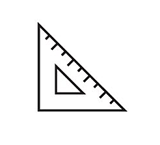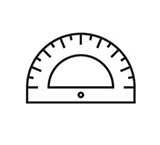아르헨티나 솔방울화석(Seed Cone Fossil Pair from Patagonia)-20120827-1 


| 국내/해외배송 | |
|---|---|
| 배송비 방법 | 택배 |
| 배송비 | 4,000원 (50,000원 이상 구매 시 무료) |
| 수량 |
|
| 상품 정보 | 가격 | 삭제 |
|---|---|---|
| [총 상품금액(수량)] 0 (0개) | ||
일반명 ; 아르헨티나 솔방울화석(Araucaria mirabilis Seed Cone Fossil Pair from Patagonia)
학명(Name) : Araucaria mirabilis
분류(Division) : 구과식물문(Pinophyta), 소나무강(Pinopsida), 소나무목(Pinales), 남양삼나무과(Araucariaceae)
지질시대(Geological Time) : 중생대 중기쥐라기(Middle Jurassic, Callovian Stage; 160-165 million years ago)
크기(Size) : 60 mm long by 65 mm wide
원산지(Location) : 아르헨티나, 파타고니아 Cerro Cuadrato, Patgonia, Argentina
설명(Description) : 현재 솔방울화석 중에 가장 보관 상태가 좋은 것은 역시 아르헨티나의 파타고니아지역에서 발견되는 표본들이다. 이들은 완벽하게 수정으로 치환되어 내부도 매우 아름답지만 표 본과 같이 외부의 모습도 거의 완벽하게 보존되어 있는 아름다운 화석이다. 박물관에서는 대표적인 솔방울화석으로 자리잡고 있는 대표종이기도 하다.
여기의 아름다운 솔방울화석 표본은 아르헨티나의 파타고니아에서 발견되었다. 일반적으로는 하나로된 표본보다는 한 쌍으로 된 표본이 좋을 수 있습니다. 이 표본의 이름은 칠레의 아라우코(Arauco)에서 유래되었습니다. 오늘날 이 소나무와 가장 유사한 표본은 남아프리카에 있는 Monkey Puzzle Tree와 오스트레일리아의 노퍽섬(Norfolk Island)의 소나무 입니다.
현재 이 화석은 남미(아르헨티나, 브라질, 칠레)뿐만 아니라 뉴 칼레도니아, 호주, 뉴기니에서도 발견되므로 대륙이 어떻게 이동하였는지 흥미를 가질 수 있습니다. 이 표본인 아라우카리아(Araucaria)는 백악기말에 공룡과 같이 북미에서 멸종되었으며 중생대 동안 가장 많이 분포하였습니다. 당시 이 나무는 100여 미터까지 자란 거대한 종이었습니다.
This incredibly beautiful specimen is an example of the seed cone from Auraucaria mirabilis. It differs from pinecones in having only a single ovule (seed) in the cone scale, rather than a pair. The genus derives its name from the Arauco Province of Chile. Its closest relatives today are the Monkey Puzzle Tree of South America and the Norfolk Island Pine.
The genus today enjoys a disjunct distribution due to continental drift, being found in South America (Argentina, Brazil, and Chile) as well as New Caledonia, Australia, and New Guinea.
The Araucariaceae had their maximum distribution during the Mesozoic, becoming extinct in North America with the passing of the dinosaurs at the end of the Cretaceous. These trees stood some 100 meters tall, and were felled by a series of volcanic eruptions, covered by ash, and preserved. Over time, water seeped into the deposits, digesting the ash, and depositing minerals that resulted in the panoply of colors seen today.















 확대보기 및 상세정보
확대보기 및 상세정보